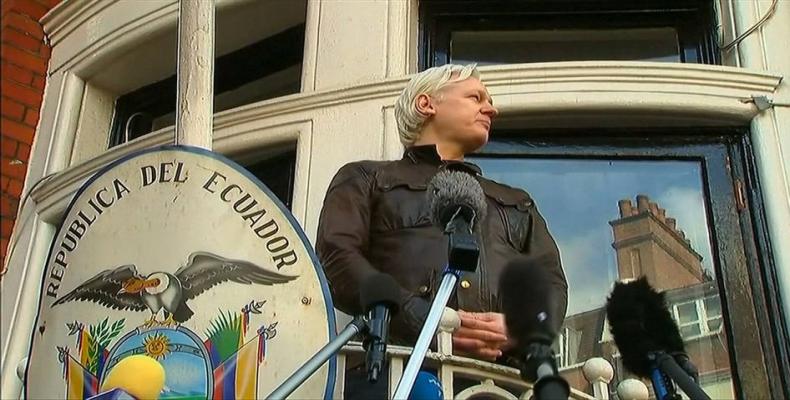London, Feb 14 (RHC)-- In the UK, Westminster Magistrates' Court has ruled against withdrawing an arrest warrant for WikiLeaks founder Julian Assange. The order, which is centered on the information activist absconding bail, remains active in the United Kingdom.
Emma Arbuthnot, the senior district judge who ruled on the case, said she was unconvinced by the argument presented by Assange's legal defense. “I find arrest is a proportionate response even though Mr. Assange has restricted his own freedom for a number of years... Defendants on bail up and down the country, and requested persons facing extradition come to court to face the consequences of their own choices.”
However, Mark Summers QC, Assange's lawyer, said that detaining was no longer proportionate nor in the public interest, as Sweden had withdrawn its extradition request. He went on to argue that the years Assange has spent within the confines of the Ecuadorean Embassy in London were “adequate, if not severe” punishment for his actions, citing a report by a U.N. committee stating that the Australian national was being arbitrarily detained, according to The Guardian.
Assange, who has been holed up in the Ecuadorean Embassy for over five years, will continue to face arrest if he leaves the premises.
The court was tasked with ruling on a legal bid to dismiss any further action against Assange on the charge. Assange, however, can still face extradition to the United States to answer to charges related to the operations of WikiLeaks, which published a large volume of classified military and diplomatic documents – one of the most extensive information leaks in U.S. history.
While the U.S. Justice Department, during former U.S. President Barack Obama, declared that WikiLeaks was similar to a media organization and its prosecution would be inappropriate, and current U.S. President Donald Trump said during a campaign rally, “I love WikiLeaks,” a Justice Department official confirmed to Reuters that an investigation into the organization was still open in the state of Virginia.
In a tweet posted after the judgment was delivered, Assange said: "The judge went outside what the parties presented in court. This seems to have led to the significant factual errors in the judgment. The U.S. Justice Department confirmed to Reuters again yesterday that its case is ongoing." The WikiLeaks founder has three months to appeal the judge's ruling.
British arrest warrant for WikiLeaks founder Julian Assange upheld, legal team to appeal ruling


